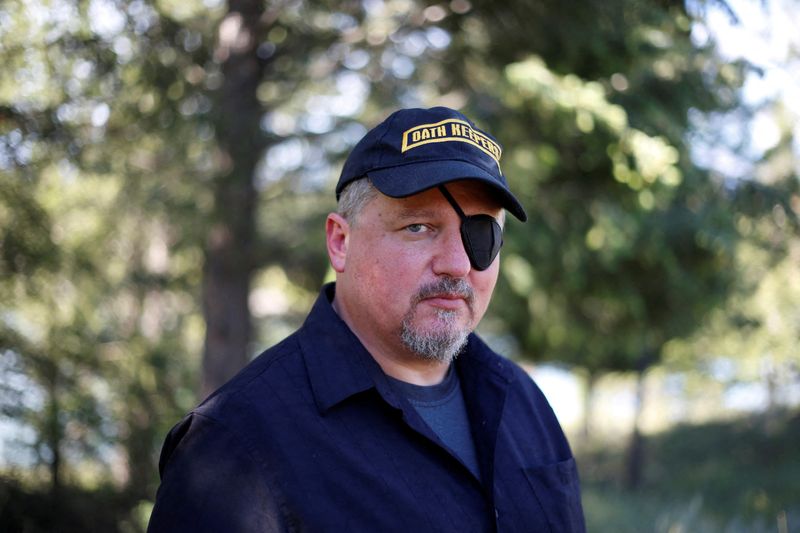(Reuters) -The founder of the Oath Keepers militia, Stewart Rhodes, will remain in jail until his seditious conspiracy trial for allegedly helping plot the assault on the U.S. Capitol, a U.S. judge said, calling him a “clear and convincing danger.”
U.S. District Judge Amit Mehta said during a Friday court hearing that Rhodes spent thousands of dollars on weapons and other equipment ahead of the Jan. 6, 2021, attack on the Capitol by Donald Trump’s supporters and also made “substantial purchases” of weapons afterwards.
“He presents a clear and convincing danger, in my view,” Mehta said.
Rhodes’s lawyers had proposed he be released into the custody of relatives in California, where he would stay in a separate residence on their property without access to the internet.
Mehta said he was not satisfied with that arrangement, stating that Rhodes “has been extremely sophisticated with his ability to communicate.”
Criminal defendants are often released pending trial, since they are presumed innocent until convicted, but can be held if they are deemed dangerous or likely to flee the country.
Rhodes, 56, is the most high-profile defendant of the more than 725 people charged with playing a role in the attack by then-President Trump’s supporters. His lawyer said there is no evidence that Rhodes conspired to block Congress from certifying Joe Biden’s election.
He is one of 11 members or associates of the Oath Keepers facing a seditious conspiracy charge.
Rhodes is accused of spearheading a conspiracy to block the certification of the presidential election by recruiting others and even stationing armed “quick reaction force” units outside of Washington to be ready to stop the peaceful transfer of power.
A U.S. magistrate judge in Texas last month ruled Rhodes should be detained, after hearing testimony from an FBI agent as well as Rhodes’ ex-wife who expressed concerns for her safety. Rhodes appealed that decision to Mehta.
(Reporting by Jan Wolfe in West Palm Beach, Florida; Additional reporting by Jacqueline Thomsen in Washington; Editing by Scott Malone, Alistair Bell and Richard Pullin)

























